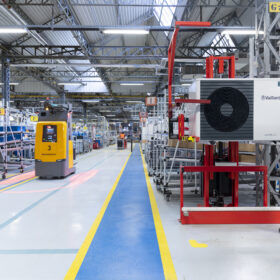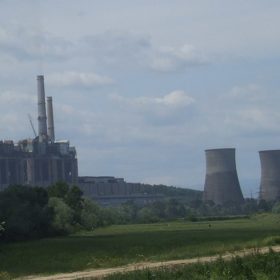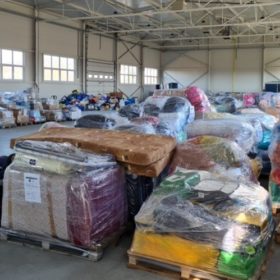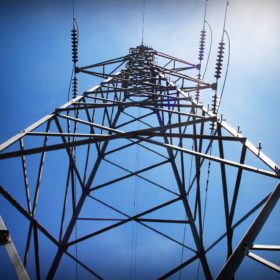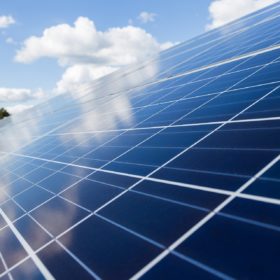German manufacturer opens heat pump factory in Slovakia
Vaillant has revealed that it has opened a new heat pump factory in Slovakia. The facility will exclusively make heat pumps from May, with an expected annual output of 300,000 units.
The Hydrogen Stream: Germany launches world’s first operating hydrogen trains
Germany has launched the world’s first operational hydrogen trains and US researchers have presented a novel design for a tubular PEM fuel cell. ABB and Hydrogen Optimized, meanwhile, have expanded their strategic ties and Slovakia has moved forward with a major gas-blending pilot project.
Slovakia restarts rebate program for residential PV, heat pumps
The authorities in Slovakia are offering rebates to cover up to 50% of the cost of buying and installing solar water heaters, PV systems with generation capacities of up to 10 kW, heat pumps, biomass systems, and solar-thermal collectors.
EU energy fund to commit $514 million for solar projects at Romanian mining waste sites
Panels will be installed at waste sites in five mining towns as part of the latest, €2.4 billion ($2.57 million) round of investment from a fund set up to help coal-dependent European member states with the energy transition.
Solar arm for agrivoltaic applications
A Slovakian startup has developed a photovoltaic-integrated arm that provides off-grid power for weeding and other small agricultural applications. In its largest configuration, the system is 18 meters long, has a capacity of 2.4 kW, and is able to cover a cultivated area of 994 m².
Slovakia’s first solar module factory
Slovak manufacturer Agora Solar is planning to build a 150MW factory in Vranow, in the eastern part of the country. The facility will produce glass-glass panels and may reach a capacity of 500MW by 2024.
Commission flags up €875m renewables project fund
A call for grant proposals has been promised this month, with the bloc’s executive yesterday firing the gun on a separate exercise related to cross-border EU energy infrastructure projects.
Transatlantic silicon battery tie-up promises ready-to-use EV products
Slovakian business InoBat will use the patented silicon battery material manufactured by U.S. company Group14 Tech to offer bespoke products for the world’s biggest carmakers.
EBRD furthers green agenda in Slovakia, Serbia and Uzbekistan
The London-based development finance provider has made more than €50 million available for sustainable investment across three separate credit lines recently.
Solar could help Azerbaijan consolidate gains in Nagorno Karabakh after recent conflict
That was just one of the revelations of the latest Dentons’ Guide to renewables investment in Europe, which also noted solar plants could be switched off in Slovakia, Ireland could go either way on clean power pricing, and Luxembourg is struggling with a surprising headache.
